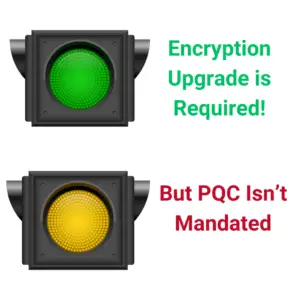Difference between Quantum Secure and Quantum Resistant Cryptography
#Definitions

Quantum Proof Cryptography:
- Quantum secure cryptography refers to cryptographic algorithms and systems that are designed to be completely impervious to the computational capabilities of quantum computers.
- If a cryptographic system is labeled as quantum secure, it implies that even the most powerful quantum computers, using algorithms like Shor’s or Grover’s, would not be able to break or significantly weaken it. This status indicates absolute protection against quantum attacks. Shannon’s Perfect Secrecy is the only current Quantum Secure Cryptography.
Quantum Resistant Cryptography:
- Quantum resistant (or quantum safe) describes cryptographic algorithms that are robust against quantum computing attacks to the best of current knowledge.
- Quantum resistant cryptography acknowledges that future advancements could reveal vulnerabilities.
Key Takeaway
- Quantum Secure means that it is unbreakable guarantee against quantum attacks, based on current research and understanding.
- Quantum Resistant means that the cryptographic system is believed to be secure against known quantum attacks, based on current research and understanding.





